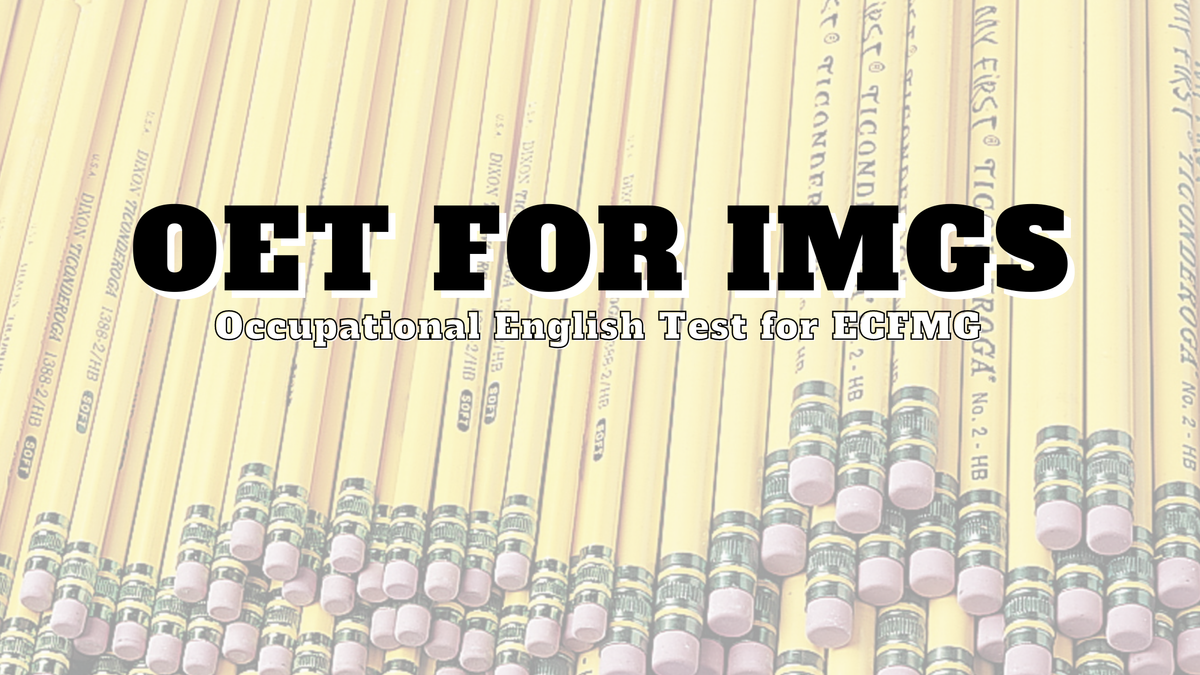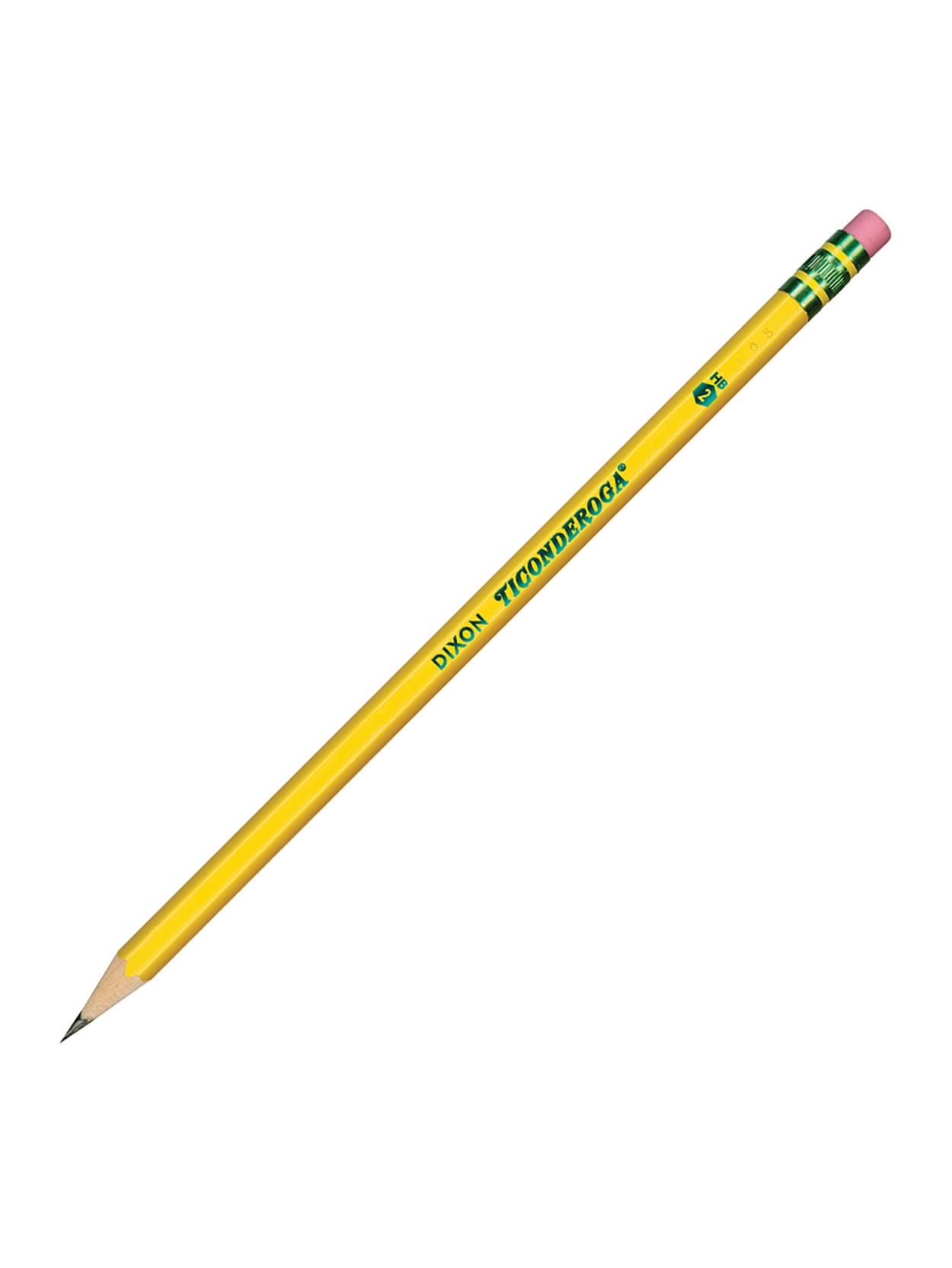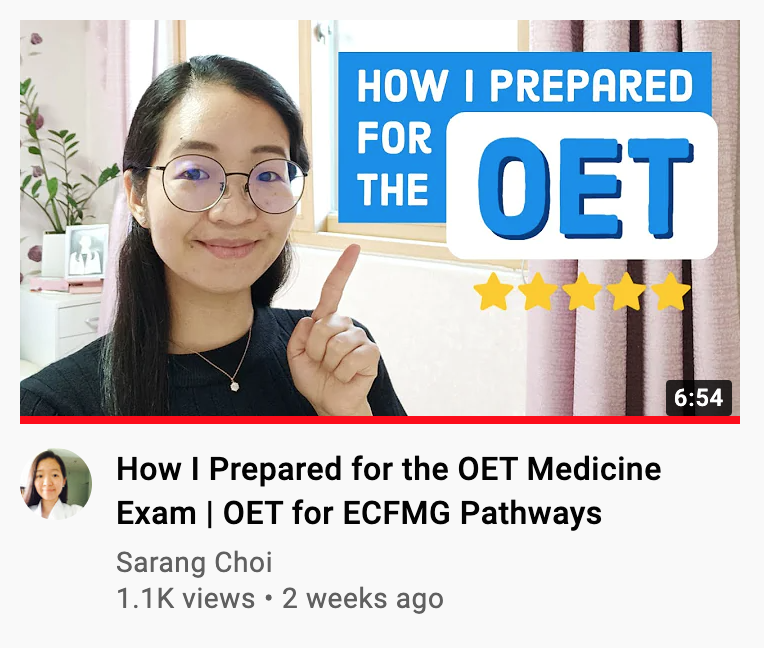OET Medicine for ECMFG: What I Wish I’d Known
This blog post is a compilation of the things I wish I had known going into preparations…

This blog post is a compilation of the things I wish I had known going into preparations for the OET Medicine exam. Hopefully it’ll help you avoid some of the mistakes I made.
A bit of context: as an international medical graduate pursuing residency in the United States, you need ECFMG certification. In order to qualify for that, you must take the Occupational English Test for Medicine (OET Medicine) and pass with a “Grade B” or higher (350 points or more on each of the four sections).
THINGS TO KNOW
First and MOST IMPORTANTLY: this is the thing that I did not realize until it was almost too late… timing is everything.
Book your date early!
OET Medicine dates are few and far between. There are VERY limited testing opportunities – about two dates a month/location, so you have to plan ahead. Applications for the test date usually close a month prior. For example, I took my OET in Philadelphia and I had trouble finding a test date that worked, because I had to plan around medical school final exams, graduation, rotations, etc. As you can see, the applications closed on June 13th (I booked late April, and so glad I did).
I don’t know how quickly these spots fill up (maybe they never do?), but given how few dates there are, I recommend booking as early as possible.
Rebooking comes at quite the cost though (from what I understood), so be sure that you book the right date!

OET on Paper vs on Computer: what’s the big difference?
None, as far as I can tell, except that if you’re a lame-o like me, you’ll have to handwrite your writing portion, which is considerably harder for someone who types >> handwrites in most parts of her life. There’s apparently an application you can use to practice the OET on Computer test, linked here, but I didn’t use it since my test was on paper.

For the Paper version, you have to use #2 pencils (like back in grade school) and if you’re like me and you’re too lazy to buy them, they’ll have more than enough for you to use!
These are not to be confused with OET@home, which was an initiative during COVID-19 that I’m not sure will be restarted (don’t quote me on that, but what I mean is that you shouldn’t bank on it coming back and thus delay your application to wait for it).
OET with headphones vs. without
You might notice that for some test centers, it mentions headphones – this is because during the listening section, you get a headset and get the audio through there. In other cases, they play the listening part over speakers. I’m not sure if the difference is all that big, but the advice I heard is that if your test will be without headphones, practice the same way: without headphones.
Make sure you’re booking the MEDICINE exam
This one might seem straightforward but keep in mind that OET does lots of tests for all kinds of healthcare workers, so make sure that when you sign up, you sign up for OET medicine, and make sure that when you use prep resources, that they’re also for OET medicine.
Don’t forget to request that OET release your score to ECFMG!
There was no mention of this on the website (at least, none that I could find), so I messaged OET and they sent me this email, which allows you to make an official request. I’m really glad I reached out to them, because otherwise I might never have had my OET score automatically sent to ECFMG.
Thank you for contacting OET.
To provide ECFMG access to your results, please fill in this form and we will send your results to them as soon as they are released.
Also make sure to follow these steps once your results are released:
– Login to your myOET account
– Click on the drop-down arrow on the OET results you would like a verification institution to see
– Select Manage Verifier Access
– Search the verification institution
– Choose the verification institution from the list
– Click save.
See this video for additional instructions.
Use the right schedule for the day
At some point, you’ll receive an email with your schedule for the day. I’m attaching mine so you get an idea of what it will look like. I received mine June 28th for the July 9th date. As you can see, there are separate start times for each of the four sections and mine will span across lunch, so I’ll pop out and grab a snack in my break.
Of note, the schedule in the email is different than the one on the myOET dashboard. I called OET and the agent told me to go by the schedule in the email — which is great to know, because if I’d gone with the dashboard one, I would have missed my exam.


For me, every candidate had their speaking at a different time (they staggered the 36 or so students that had their test today) across all hours that morning. Then we all reconvened at 12:30pm to do the other three sections. Listening, reading and writing were all conducted in one giant block without breaks in-between.
[Note: you can take bathroom breaks during certain parts of the exam — they’ll explain exactly when — but your test timer does not stop. So if you feel like you’re rushed for time, I recommend peeing before the listening section and not drinking lots of coffee/water.]
Make sure your information aligns with your passport and ECFMG
…and use the same email address for both websites, for sake of ease. These might seem obvious, but just save yourself the headache of messing up and then having to call everyone to fix the error. Be sure that the name is the same as the passport with which you’ll take the exam on test day.
RESOURCES
Now to talk a little bit about the resources and study time I used. I do NOT recommend this technique, especially because I don’t yet know if I passed the exam. I repeat: do not base your study schedule on mine.
Background: I consider myself a native speaker, although I did not learn English as my first language, it’s definitely my strongest language. I also consider myself pretty good at English (I always liked Lit and used to read and write a lot for fun), so please take my advice with a grain of salt. And remember, I don’t know my score yet (we get it in 20 days), so I don’t even know if I passed. I will update this blog post once I find out my score, but please keep that in mind.
My MAIN resource was the OET website itself. I decided to get my information straight from the source – who best knows how to pass the exam than the organization that administers it? Make sure that you’re using OET Medicine resources (not everything has a medicine-specific version, but it’s up to you to figure out what has overlaps and what’s unique to medicine, because unfortunately I didn’t pay enough attention to it).
They have sample tests (3-4 for each of the four sections) and I did many of those. Even as a native English speaker, I think it’s important to do at least a few sample tests of each portion so you get a feel of the layout and the expectations. I also watched their YouTube channel quite a bit, and, most importantly, I watched their “How to Study for the OET as a Native Speaker” webinars (one for writing and one for reading, I think). I’ll link the key things below:
- OET official YouTube channel
- Guide for Test Takers: this is one of their playlists on their official channel and I watched a ton of these videos
- Special Consideration: OET for Native Speakers (they had live webinars when I was preparing, but all their webinars are recorded so don’t be discouraged if there are no live ones and/or it’s outside your time zone)
- Writing for Native Speakers here
- E2 OET: this is a YouTube channel with “expert OET teachers” and a lot of people use their channel. I’ve heard mixed reviews – one person, for example, said it was too easy compared to the real thing. Make of that what you will. I shared the link and you can decide for yourself if it’s useful; I personally just watched a few of their “tips” videos.
- Benchmark: this is a company that helps with writing prep. I did not use this company – just mentioning it because I heard some other people did and found it helpful. (They made the score calculator, linked below.)
I was mostly worried about the writing part (that’s the one I heard some native speakers failed), and I read through about 20 or so samples and compiled some key phrases for myself here. I had trouble forming sentences using the “OET” mindset, so I put together this little doc to get me used to using these phrases, and I tried to make one for everything I’d encountered throughout the samples I read.
I also watched a few YouTube videos from other people who’d taken OET for ECFMG purposes. My favorite one was this one by Sarang Choi, linked here.

Score calculator
I used THIS score estimator to calculate my practice scores. It is not an official OET website (note the URL), so I have no idea how accurate it is, but it’s the best I could find.
How long did I study?
I studied very haphazardly: an hour here, an hour there. A week or two before, I started to familiarize myself with the test format and watched some of the OET Medicine webinars. I did a reading sample (found it surprisingly tricky), a listening test (found it easy), and a writing test (found it really hard).
In the four days leading up to the test, I did a speaking role-play with my mom and watched a few of the “speaking OET” how-to’s. I did a few writing practices, and read through about 20 or so samples all together. The night before the test, I made that document of key phrases, which served sort of like a template for me, and did another reading (less tricky than previous).
How long YOU study should depend on your schedule, your English level and your confidence. It’s a high-stakes exam mostly because of its costs (and sometimes, time constraints), so be honest with yourself.
Things to take with you on test day
The single most important thing is your passport. Everything else is just secondary. If you forget pencils, they’ll have some. If you bring the wrong type of water bottle, they’ll give you one. (You can only have a clear water bottle, with no label.) So the only thing you really need is your passport and you’re good to go! And don’t forget to pee!
How did my OET Medicine exam go?
I just had the test this morning. It went okay, I think. I don’t think I failed (I really hope I didn’t), but who knows. We get our score 20 days from now, so I’ll check back when I receive that and let you know.
Speaking: it felt awkward, I stumbled over a few words, but my speaking partner was very nice and it went by fast.
Listening: I zoned out a bit during the 2nd listening exercise and then I lost track of which question we were on… this meant that I might’ve gotten about 4/6 of those wrong, which is a lot. But let’s cross our fingers.
Reading: the reading portion can be tricky, so you have to really concentrate. I have no idea how it went but I didn’t run out of time or anything.
Writing: I hadn’t practiced handwriting (I typed all my practice exams, because I’m lazy), but it went okay. I had time ot count my words and realized I was over the suggested 180-200 by quite a bit, so I ended up erasing a lot and rewriting some long-winded sentences. I hope I got my point across.
The day felt long, so make sure you eat breakfast or bring a snack if there are no food places near your venue.
UPDATE:
I got my score a few weeks ago and I did pass! I was very relieved and happy that I wouldn’t have to retake it. Overall, my scores were above 400, with writing being the lowest scoring category.
I hope this blog post helped you in your preparation, and good luck with the OET and the Match!
For other blog posts related to the Match, check out:



